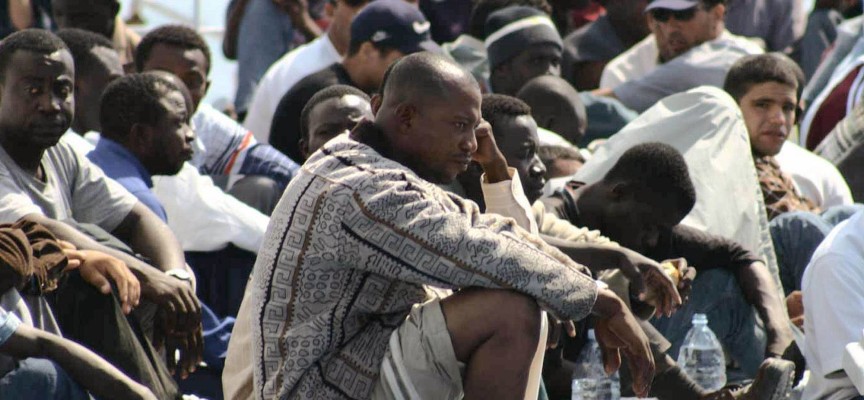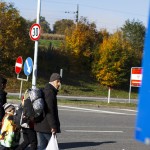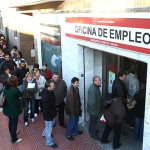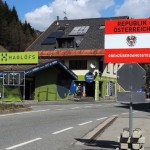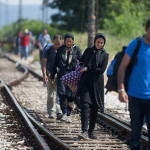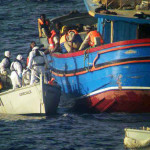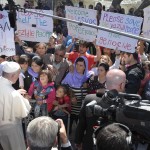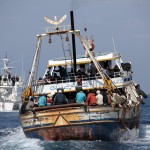The European Commission seemed to want to revise the Dublin Regulation III on the access of asylum seekers in Europe. On the evening of 4th May, in Brussels, it fell short of expectations, ignoring the proposals of a centralized European asylum system and the opening of legal and safe channels of arrival, proposals presented in Parliament. The Commission remains firm on the status quo, not exceeding the obligation of the migrant to seek asylum in the first country he accesses to, procedure which led six Member States – including Italy – to receive 80% of the requests. Meanwhile, at this time, in the Mediterranean the interception of boats laden with migrants is increasing.
Father Gianni Borin, director of the Scalabrini missionaries working in Europe and Africa, in the face “of the doldrums in which the EU has long been stalled “, has no doubts: “The data continue to be alarming with arrivals in 2016 reaching almost 190,000 people and nearly 1,400 dead, as we see in these hours in the Sicilian Channel and as well as the IOM reports in these days, , but mother Europe does not want to take on seriously the responsibility of this, chained as it is to inadequate and anachronistic agreements “. The responsibility for the examination of requests, in fact, remains for now the responsibility of the first arrival / landing country, and the deployment process in other states will take place only if the number of requests exceeds 150% of the percentage established by the EU for each nation . Who does not receive will have to pay a fee of 250,000 euros for each refugee who has not been hosted, a kind of “financial solidarity”, a term which, however, is making many turning up their nose, instilling the idea that you can “record” solidarity, the rights and duties that the EU Treaties base on the sharing of problems and on mutual aid.
“Focusing on the person” says Father Borin, “implies that every asylum application is examined individually and not exclusively following macro criteria such as the country of origin, a fact that in the notorious hotspots of Greece and Italy leads only to a “deferred refoulement”, the opposite of the right of asylum stated by the Geneva Convention”. He adds:” The temporary halt of the construction of yet another wall on the border with Austria is just a dab of injustice and of the lack of basic rights, which are upstream of the arrivals of migrants and that only the dreamers may think are being resolved. ”
Scalabrini Missionaries in Europe, therefore, ask once again and forcefully that the EU MPs work in harmony to change the rules in place, putting back on the negotiating table the delicate and central issue related to the first country access , together with the effective introduction of humanitarian corridors, legal entrance ways in the EU, while avoiding the known hazards of the sea voyages, just a business for the traffickers. Ultimately, we must listen to the root causes of migration, as they are transmitted by the voice of the tide of men, women and children who sometimes just ask the EU for the transit in some countries of first arrival, other times the chance of hope for tomorrow or family reunion in other European nations.
Missionaries of St. Charles – Scalabrinians
La Commissione europea sembrava voler rivedere il Regolamento di Dublino III sull’accesso dei richiedenti asilo in Europa. La sera del 4 maggio scorso, a Bruxelles, ha deluso le attese, ignorando le proposte di un sistema di asilo europeo centralizzato e l’apertura di canali legali e sicuri di arrivo, proposte presentate in Parlamento. La Commissione resta ferma sullo status quo, non superando l’obbligo del migrante di chiedere asilo nel primo Paese di accesso, procedimento che ha portato sei Stati membri – tra i quali l’Italia – a ricevere l’80% delle richieste. E intanto, in queste ore, nel Mediterraneo aumentano le intercettazioni di barconi carichi di migranti.
Padre Gianni Borin, responsabile dei missionari scalabriniani operanti in Europa e Africa, di fronte “alla secca nella quale è da anni arenata l’Ue”, non ha dubbi: “I dati continuano a essere allarmanti, con gli arrivi nel 2016 giunti a quasi 190.000 persone e i morti a quasi 1.400, come vediamo in queste ore nel Canale di Sicilia e così come riferisce in questi giorni l’OIM, ma la madre Europa non se ne vuole prendere seriamente carico, incatenata com’è ad accordi inadeguati e anacronistici”. La responsabilità sull’esame delle richieste, infatti, resta per ora di competenza del Paese di primo arrivo/sbarco, e la procedura di distribuzione in altri Stati avverrà solo se il numero di richieste supera il 150% della quota stabilita dalla Ue per ogni nazione. Chi non accoglie dovrà pagare un corrispettivo di 250mila euro per ogni rifugiato non ospitato, una sorta di “solidarietà finanziaria”, termine che, però, sta facendo storcere il naso a molti, instillando l’idea che si possano “contabilizzare” la solidarietà, i diritti e i doveri che i Trattati Ue fondano sulla condivisione dei problemi e sull’aiuto reciproco.
“Mettere al centro la persona”, continua P. Borin, “implica che ogni richiesta d’asilo sia esaminata individualmente e non esclusivamente secondo macro criteri quali la nazione di provenienza, fatto quest’ultimo che nei famigerati hotspot di Grecia e Italia sfocia solo in un ‘respingimento differito’, all’opposto del diritto d’asilo indicato dalla Convenzione di Ginevra”. E aggiunge: “Lo stop temporaneo della costruzione dell’ennesimo muro a confine con l’Austria è solo un tamponare situazioni d’ingiustizia e di mancanza di diritti fondamentali, che stanno a monte degli arrivi di migranti e che solo gli illusi possono pensare siano in via di risoluzione”.
I missionari scalabriniani presenti in Europa, dunque, chiedono ancora una volta e con forza che i parlamentari dell’Ue operino concordemente per cambiare il Regolamento in atto, ponendo di nuovo sul tavolo delle trattative la questione delicata e centrale legata al primo paese d’accesso, unitamente all’introduzione effettiva dei corridoi umanitari, vie legali d’ingresso in Ue, evitando i pericoli noti del viaggio in mare, solo un business per i trafficanti. In ultima analisi occorre ascoltare le cause profonde delle migrazioni, così come trasmesse dalla voce della marea di uomini, donne e minori che domandano all’Ue a volte il solo transito in alcuni Paesi di primo approdo, altre la possibilità di una speranza di domani o di ricongiungimento familiare in altre nazioni europee.
Missionari di San Carlo – Scalabriniani
Latest posts by EURCOM (see all)
- What are the aims of the European security and defence policy? - 12 aprile 2017
- The Church is for the European project - 28 marzo 2017
- A message for Europe - 28 marzo 2017

